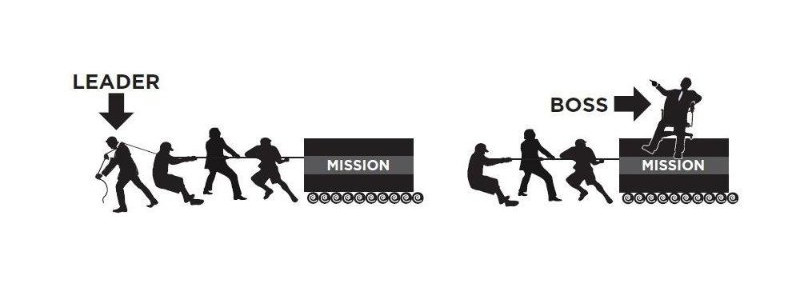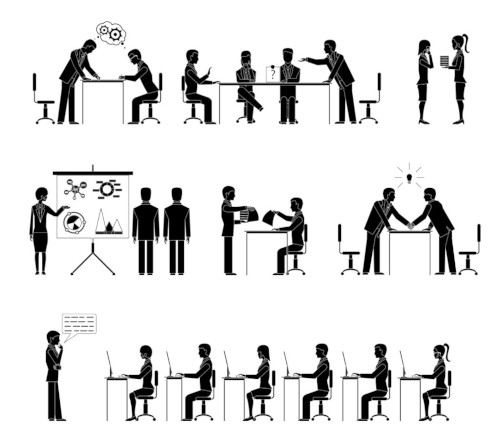Hello World!!!... Tignum Engineering Culture.
First Post: Welcome to our Engineering Blog! Nothing better than to start talking about our Engineering Core values.
This article is actually inspired by a personal blog post but the philosophy is exactly the same one.
Hello Engineering!!!
So, let me get started with this True fact:
“There is a proportional relationship in being happy and getting things done.”
How can we achieve such happiness and motivation in order to create a working environment full of good vibes?

In order to answer this question, let’s walk together through a bunch of aspects, that are key in order to construct a culture and environment based on human values which will facilitate working in harmony, thus, contributing to achieve that mentioned happiness.
Human values
We can learn pretty much every technology out there and predict its behavior, but unfortunately people are unpredictable and that is why I encourage to build up a working culture based on a set of very important human values:
- Respect
- Honesty
- Communication
- Humility
These are pillars of any relationship or interaction: family, friends and human beings in general.
Applying them all is not straightforward, but understanding them is a big win, and trust me, it is the way to go, otherwise much of our energy will be consumed trying to fix friction and conflicts bubbling up from people interacting with each other.
Here are a few tips which can help us to promote those mentioned values:
-
Respect other opinions: in the end these are opinions and we could agree or not, but listening is always a must.
-
Accept feedback without being a smartass: We are not know-it-all and we must be always open to receive feedback in a constructive way.
-
Understand we make mistakes: there are always good intentions but we are human beings and we are not perfect.
-
No finger pointing: learn out of failure and create retrospectives in order to not repeat those failures again, but please do not blame people, we are always together either in the good moments and when going through difficulties.
-
Be a team player: communicate properly and be honest and transparent.
-
We all have our bad days right? Learn to separate what is personal and what it is not.
-
Be open minded and understand other cultures: most of the time we work in a multicultural context and that is why we must keep it in mind. For example, what could be super nice in one culture, could be rude in another.
-
Listen and be patient: we all deserve our time to express ourselves.
-
Be positive: there is always light at the end of the tunnel.
-
Be friendly and help: when we ask for help, we want to see that big smile which make us feel way better.
-
Treat everyone the same way: no one is better than anyone, no rockstars. (Personal experience: people in upper layers of the company/organization, I’m looking at you).
-
Do not be shy: voice your opinion and ask anything, dumb questions do not exist.
Favor leaders over bosses
The very first and important point here is to differentiate a leader from a boss. Both roles take responsibilities but the main difference sits on their attitude and way of working.
A leader is someone I could see as a reference, someone I trust and rely on, a person I can also learn a lot from, with high human quality and values. She/he should point us in the right direction, and also defend and protect us if we are under difficult situations.
Another feature a good leader should offer, is the ability to make us feel that we are part of the project, by letting us to participate in the decision making without doing micromanagement, thus, trusting and letting us do our job.

Communication and transparency
It is evident that the smaller your organization is, the better the information flows, that is why we should favor flat hierarchies as much as we can.
This is not easy, especially if you start growing up exponentially, but minimize the number of communication layers to facilitate transparency and a good flow in the information transportation across the organization.
Here are a bunch of tools which facilitate transparency:
- All-Hands.
- Internal Wiki/Blog.
- A People’s Team (HR could also take this role).

In the end, a rule of thumb is that we should feel free and comfortable to ask any questions to anyone. If we want to feel part of a project, we need to feel it in all senses at all levels: that is why, it is important to communicate properly and efficiently in a transparent way.
Career path and continuous improvement
With this world changing so fast, we all love to learn and make progress in our careers, that is the main reason why one of the fundamental building blocks of any organization’s culture is guidance and career path.
A few more tips in this regards:
- Establish policies for mentorship: continuous learning and knowledge sharing.
- Define policies for career guidance: follow up closely employees motivations with tools like 1:1 meetings for example.
- Conduct regular employee surveys: nothing can be improved without constructive feedback.
Nothing better than celebration
Anything would be the same without celebrating our achievements: Recognition to the effort. In my opinion, this one is one of the most important ones: Celebrate your achievements.
Engineering culture
Now it is time to switch gears and go deeper into what we can do in terms of engineering (Although I guess these principles, or part of them, could also apply to any other area).
“Foment continuous learning and sharing.”
Here a bunch of key points:
- Defend code quality and good practices.
- Accept challenges: do not be afraid of making mistakes.
- Be prepare for the change: everything evolves.
- Foment continuous learning and sharing.
- Share experiences: blog entries, promote conferences attendance, etc.
- Continuous Learning: One day per week or sprint of “hacking time”.
- Use Post-mortems: learn out of mistakes.
- Retrospectives: another tool for continuous feedback and improvement.
- Have fun.
“Defend code quality and good practices.”
The power of happiness and motivation
Building an organization’s culture with all the ideas above is not easy (and there is a long path towards it) but we can always contribute from our tiny position.
These followed up points should be take into consideration when it comes to happiness:
-
Start from the trenches: build your own team’s culture and infect others.
-
Neither impose nor give commands, instead spread and pollute the environment with good vibes.
-
Become a reference and a game changer.
-
Create a context where the word pressure is forbidden: in the end we put our own pressure on ourselves. We are not under a gun and knowing when to say no is an important part of happiness and being a good professional.
-
Follow your heart: many times the heart sees what it is invisible to the eye. Especially in difficult situations.

Be a good person over a good professional
Prioritize humanity over technical skills. This is in the end my conclusion.
Both are important, no doubts, but in my opinion, nothing is more fulfilling when you open your heart and help people, and you are appreciated because of that too.
“We work with people, not with computers, they are only means to reach out to people.”
And REMEMBER: we work with people, not with computers, they are only means to reach out to PEOPLE.
Feedback
Do not hesitate to reach out to us, any feedback is more than welcome. Also special thanks to the entire Engineering Unit at Tignum for the support. You can follow us on Twitter.
 Never miss a story from this blog, subscribe to the newsletter!
Never miss a story from this blog, subscribe to the newsletter!